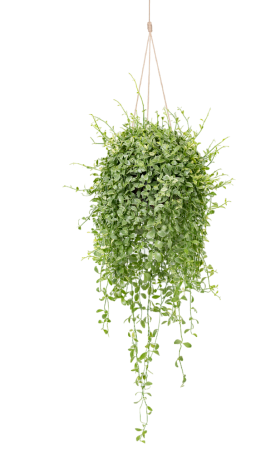Healthy Home Chores that deserve a pat on the back

Healthy Home Chores that deserve a pat on the back
It seems like it’s been an extreme year; at times either it is way too hot or unseasonably cold; you may be getting too much rainfall or not enough. What is our protection from all the elements? Our homes! Whether you’re renting or own your house, it’s smart to take care of our homes so that they will continue to protect us.
There are a number of chores that just need to be placed on a schedule so they don’t pile up and cause problems, but when you get them done, give yourself a pat on the back or another healthy reward! Here are some of them:
-
Evict pests. Although I don’t want to think of any animal being “homeless”, there are definitely animals I don’t want living near my house. If you walk around your house, look for holes in the ground, nests near the ground or in the soffits (look up!), under decks and behind bushes. Here is a fun flow-chart to understand what kind of animal made the holes (get the kids involved and soon you’ll find more holes than you knew existed!) Why evict pests? Groundhogs, for example, can make large holes that undermine foundations; mice and rats can carry diseases and fleas that can affect you and your pets, and of course stinging insects like yellowjackets (they live in underground nests that can be massive) inflict pain and inflammation and make it harder to do the next job! There are safe ways to get rid of all of them, but if you’re afraid to do it yourself, you can call a professional exterminator.
-
Cleaning the gutters. It’s a messy chore that can be dangerous for people with mobility problems, so if you can’t easily climb a ladder or feel uncomfortable doing it, hire a professional. Why? Leaves and debris building up in the gutters impede water flow, causing water to back up and overflow against your roofline and soffits, or splash over and against your house, causing rot. Clogged gutters can also cause ice dams in the winter, a phenomenon that causes ice to creep up underneath your shingles, eventually remelting and making your attic wet! Wet debris also makes gutters drastically heavier, putting more strain on anchor points so that they’re eventually not able to be supported and fall down. If the downspouts get clogged, sometimes it’s not easy to clean them out! There are gutter guard products that can keep most of the debris out of your gutters, but no product is perfect and will eventually require cleaning. The other important thing to do while cleaning gutters is to inspect for rot or water intrusion along the roofline and siding, and check the condition of your roof, so that any damage can be repaired before major water intrusion causes mold issues. Check for stinging insect nests (wasps, bees, hornets) from below before you go up on a ladder, so that you can disable them before they disable you!
-
Clear away dead wood, leaves and trash. Of course, lawn mowing and fun in the backyard can’t happen with downed limbs and sticks in the way, and more importantly, dead wood and leaves promote termites. If you have garbage service, you can find out which days they will pick up yard debris; if not, haul them to a more wooded section of your property where they can safely decay. Trash and broken furnishings are invitations for mold, crawly pests and mosquitoes to take residence, so put on some gloves and haul it all to the curb or to the dump!
-
Clean windows. I never thought of it this way, but clean windows = a clean bill of health. Here are some of the nasty stuff that can cling to your windows outside and even affect your indoor air quality (source: Fish Window Cleaning):
-
Bird Droppings - Contact with bird excrement, which can carry up to 60 diseases, can lead to many diseases.
-
Mold and Mildew - These fungi are often found inside homes, but they can also thrive on windows. Mold and mildew exposure can aggravate respiratory allergies as well as chronic respiratory conditions like asthma.
-
Pollen - Pollen can accumulate on window panes and sills, contributing to the sneezing, eye irritation and congestion often associated with pollen allergy - even when indoors!
-
Dust - Windows can accumulate plenty of dust - and worse - dust mites. Dust mites are microscopic, insect-like pests that love dirty windows and can cause respiratory issues and allergic reactions because of their feces, which may create airborne health hazards.
-
Clean mold off sidewalks, decking, siding and landscaping: older homes that are not sealed tightly will have more air flowing into the house, even when doors and windows are closed. Do you want it to be clean, fresh air, or air that has passed over mold growing on the side and perimeter of the house? There are safe ways to wash it off, and it’s also necessary to trim overgrown bushes and trees so that the areas around the home can dry out and not harbor mold. Mold can also grow on mulch, and raking your mulch regularly allows it to dry out and receive fresh air which prevents mold from growing. Try to set a regular schedule for watering your plants too, because if you are watering your plants everyday, your mulch is wet every day. That means you are helping to create the perfect damp environment for mold to grow on your mulch. Instead, try to water your plants once or twice per week to give your mulch time to dry out. (calblendsoils.com)
Indoors, there are jobs that go beyond “spring cleaning” because they don’t produce the satisfying visual results of a clean floor…yet are oh-so-important to keep up the health of your home.
-
Clean your kitchen exhaust vent. I know, the grease is gross but that’s why you need to do it–especially if your vent is recirculating air back into your kitchen! Some filters can be placed directly into your dishwasher–let the machine do the work! If it’s one that is a simple stainless steel mesh, you can order a new filter and toss the old one. Other safe ways to clean the filter are to use salt, baking soda and vinegar (check out this short video) or baking soda and dish detergent (here’s the tutorial). Both of these methods require really hot water because melting the grease off the filter takes the least effort.
-
Clean out the refrigerator. If you like to throw things away (it is oddly satisfying), cleaning the fridge is probably not a bad chore! Clean shelves and good organization are nice little paybacks at the end. Although one website says that the crispers and meat storage bins should be cleaned once a week(!), I think it’s more realistic to aim for 4 times a year. Realsimple.com gives a good game plan on when and how to clean it. If you find that you need some extra organization bins to help keep it clean and organized check these out (8 for $23). While you are in the cleaning mood, cleaning the refrigerator coils will help your fridge to last longer and cool more efficiently (check out our tips here).
-
Dust the vents. If you dust your vents weekly, bravo! (apparently you and Martha Stewart are on the same schedule). If not, use the soft head on your vacuum cleaner extension to suck up dust before it gets airborne with the next blast from your air conditioning or heating.
-
Clean the fans. Fans (ceiling and portable) are really important to keep air circulating in your house. Air circulation prevents mold by causing excess moisture to evaporate from soft furnishings instead of settling into it. Air circulation also prevents stale air pockets in your home, aiding air conditioning and heating. Finally, air circulation helps dilute VOCs and pollutants from inside your home, so that you are less affected by them. For all these reasons, it’s important to keep your fans clean! If you have ceiling fans with a normal height ceiling (8-10 feet), then try this ceiling fan blade cleaner instead of getting up on a ladder. If you use it every other week or so, you can keep your fans clean without having to break out the ladder, soap and water. If you are not so diligent and the dust is pretty thick, you can try this trick from bobvila.com: take an old pillowcase and slip it over one blade to catch the majority of dust while you move it off the blade, then use a damp microfiber cloth to finish the job.
-
Clean the dishwasher. Dishwashers are, unfortunately, a great place for mold to grow: you got warmth (check), water (check) and air (check). Given these optimal mold breeding grounds, the dishwasher needs deep cleaning every once in a while (like, at least once a year) to keep your dishes sanitized and looking their best. Here’s a video on how to do it.
-
Clean the washer and dryer. Laundry rooms can get pretty dirty and dusty, considering that all the dirty clothing of the household passes through them every few days! Cleaning the tops of these appliances will give you a visual boost, but keep going. Take time to wipe the seals with sanitizing or disinfecting sprays and cloths (check out our non-toxic list here) and run a full load of laundry in your washer on the hottest setting with EC3 Laundry Additive to get the mold out (a non-toxic bleach alternative). Make sure to disconnect and clean the dryer vent at least once a year to prevent lint from building up–it’s a fire hazard!
-
Get your chimney cleaned. If you have used your fireplace in the last few years but not cleaned the chimney, don’t wait til the snow comes down to worry about whether it needs cleaning! A professional service will also check the damper at the bottom so that it will seal off when you’re not using it, and the guards at the top of the chimney to prevent critters from coming inside.
Of course, we know there are zillion things that can keep you from accomplishing these cleaning chores, but there are ways to lighten the load: make a deal with your best friend (my house this week, your house next week!), good music, and setting one goal at a time are just some of the tips we recommend for any de-cluttering or cleaning job. Then, there is the “having guests” incentive: guests are a sure motivator, provided you invite people often enough! Finally, but most importantly, these jobs are all part of maintaining a healthy home, and it’s a good feeling to know that you and your family are breathing clean air and using clean appliances. Keep up the good work!

Photo by Clay Banks on Unsplash






